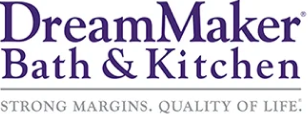Dale Ressler is a fascinating guy. In this Q&A, he explains how the DreamMaker remodeling franchise helped him achieve peak performance — and provided a timely parachute.

Dale Ressler has been a drag racer since 1989 and a remodeling business owner since 1990. When he’s not racing and remodeling, he also serves as a chaplain and paramedic for the NHRA. Obviously, Dale is not afraid of taking risks, but he’s also smart enough to look for ways to keep things as safe as possible.
He had already built a very successful remodeling business, but years of hard work culminated in shoulder surgery that forced him to reimagine his business with him in a management role instead of providing a lot of the labor. That’s a big reason why, in 2006, he decided to join the DreamMaker Bath & Kitchen franchise.
This is his story.
How did you find out about DreamMaker?
In 2005, I was named one of the Big50 by “Remodeling Magazine,” and DreamMaker called me to see if I would like to join the franchise. At the time, I probably wouldn’t have been as interested, except that I had recently undergone shoulder surgery and was forced to rest. Talking on the phone was one of the few things I could do. And as I talked with DreamMaker, the prospect of joining the franchise became more and more appealing.
I knew that I couldn’t keep doing what I had been doing. My surgeon told me that I needed to do something different for the next 15 years — he didn’t want me throwing around sheets of plywood and drywall with my new shoulder.
Of course, that had me thinking, “How do I make that happen?” DreamMaker had the systems to help me work myself into a completely management role. They also had buying power with cabinet companies and more, which would help me specialize in kitchens and bathrooms. That was all stuff I couldn’t do on my own.
What sets DreamMaker apart?
One of the things that separates us from rest of world is the Code of Values that we, as business owners, and all our staff sign onto. We conduct our business and behave with clients according to our Code of Values, and we always show them to customers and will give them a copy. That, right up front, separates us from the remodeling world. Our process is also different. It’s more relational selling — helping customers decide what is best for them. That includes determining if we are a good fit for them or if they are a good fit for us. It’s not just about seeing how quickly we can get someone to sign a contract.
Our location is a one-stop shop where we can show flooring, tile, faucets, wall colors, counters — all that stuff a client wants to explore in one place. We also communicate with customers a lot more often than others. If we see something during a remodel that isn’t what we expected, we notify the customer and work out a solution to the problem. We set expectations and live up to those expectations.
There are a lot of remodelers just working out of a truck who can do the work. The experience we give the customer sets us apart. We do really good quality work, but the process and relationship we build with clients is what sets us apart.
 Dale and his wife, Bobbi.
Dale and his wife, Bobbi.
How large is the opportunity for a professional remodeler to grow a business?
It’s definitely getting stronger. There’s a lot better chance at being successful and growing a business with DreamMaker than if you were just hanging a sign on your truck and trying to start it on your own, because you wouldn’t have the marketing systems, production systems and training systems that you get when you buy a DreamMaker franchise.
What have you found most helpful?
The marketing department is extremely helpful. They have a lot of ideas and know what has worked in other places, and they provide a lot of input. They also help you stick to a marketing plan. When I was on my own with my business, marketing was just a gamble. When I felt like I should put an ad in the paper, I put an ad in the paper. There wasn’t a system or a marketing budget. With DreamMaker, you create a marketing budget and plan for what you going to do. It’s so much more analytical, systematized and scientific — it’s not just rolling the dice and hoping you get a return.
How did the recession affect your business? Did being part of DreamMaker help?
In 2008, our average job size was $35,000. When the economy tanked, our average job size tanked, too. People just stopped spending. We were doing a lot of repair work. Rather than remodel a whole bathroom, customers would ask us to just replace a tub. Things have gotten much better since then.
I believe we probably would not have survived the tanking of the economy and our industry — certainly not as well — if I hadn’t been with DreamMaker. I have a coach that I talk to every couple of weeks, and through that time there was somebody else to give me input, to hear me complain, to give me a perspective that was from outside of the muck. One of DreamMaker’s systems enables franchisees to collectively get together and brainstorm and work through difficulties. I was part of a group of franchisees who worked on each other’s businesses in an effort to help each other weather the storm and come out in the best shape we could. It was huge. It’s hard to put any quantitative value on that. When I look back on all the opportunities I had and the different people who helped propel us through the bad times, and who helped us survive and then come out and be ready to prosper during the rebound — it’s huge to know you have people like that in your corner.
Why do your customers prefer you?
Attention to detail is big for us. I also like giving customers a lot of input throughout the process. Where would you like the towel bar hung? At what height? Do you like the mirror at this height? We are also there when we say we will be. Depending on the customer, I will sometimes give them a written schedule. This week, I hope to accomplish this, this and this. By the end of the week, we expect to have done this. We set expectations so they aren’t left to wonder what we did and what is next.
What do you appreciate most about the leadership and support staff at DreamMaker?
They are awesome! I know everybody at corporate at this point personally, and even the other franchisees are like family. I tell you, the franchisees are some of my best friends now. They might live in Michigan or Illinois, but they have become very close friends. We talk on the phone, and when we have our get-togethers at DreamMaker, it’s a good time with friends getting together and helping each other, genuinely being concerned for each other and having fun. I’m not sure I can put words to it. It’s very unique, from what I hear people say who are in other franchise worlds.
You’re describing a very collaborative partnership. How does that help make everyone stronger?
I want to constantly be growing and learning. What do I need to do to stay on the leading edge? We are invited to help build and refine the systems that make DreamMaker strong. Sitting on a task force dedicated to designing a new production system, developing consumer financing options or working on some other R&D can cost some time, but it provides huge benefits. The R&D happens faster with franchisee involvement, and there is a lot of buy-in.
Our systems are extremely thorough. We have systems for what to do from the first moment a new customer calls or walks into the Design Center, to the installation, to the way to clean up from the project, to the way you collect the final check. There is a sales system that is designed to provide a seamless handoff to the production team, and there are checklists for everything.
Somebody can buy a DreamMaker and know nothing about remodeling a bathroom or a kitchen. As long as they have craftsmen and skilled people on staff, they can run the business according to this system.
Would you recommend a DreamMaker franchise to someone else?
I am a very big proponent of DreamMaker. It’s not perfect; there isn’t anybody or any company that is. But DreamMaker is very genuine, and they are who they say they are.


